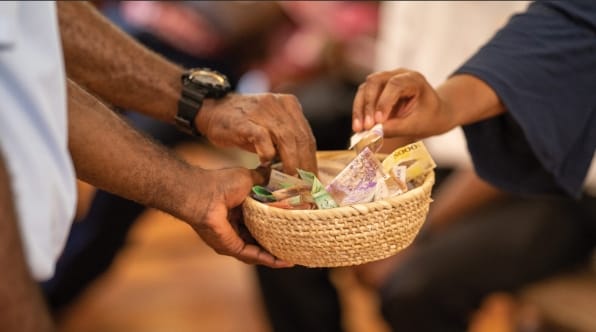The 2025 Secondary Schools Football League (SSFL) Championship division is heating up as teams across five zones battle for supremacy and a spot in the prestigious ‘Big 5′ tournament, which serves as the gateway to premier division promotion. With Round One completed and the second round underway, the competition is intensifying, promising thrilling matchups on October 14. In the South Zone, Pleasantville Secondary leads with 14 points, closely followed by Palo Seco Secondary and Siparia West Secondary, both on 12 points. Pleasantville faces a stern test against Palo Seco, while Siparia West takes on Point Fortin East Secondary. The North Zone sees a tight race between Mucurapo West Secondary (17 points) and East Mucurapo Secondary (14 points), with their recent 2-2 draw adding to the drama. Mucurapo West will face Tranquillity Secondary, while East Mucurapo takes on St Francis Boys’ College. In the Central Zone, Chaguanas North Secondary (16 points) leads after a 3-0 victory over Couva West Secondary (15 points). They will face Presentation Chaguanas in a top-two clash, while Couva West aims to bounce back against Cunupia Secondary. Tobago Zone leaders Speyside Secondary (18 points) remain favorites despite a recent loss, as they face Roxborough Secondary. Meanwhile, Goodwood Secondary and Mason Hall Secondary clash in a bid to close the gap. In the East Zone, Hillview College (18 points) continues their dominant run, aiming to extend their perfect record against Holy Cross College. El Dorado East Secondary and St George’s College also face off in a crucial match. With high stakes and fierce rivalries, the SSFL Championship division promises excitement and drama as teams vie for glory.
博客
-
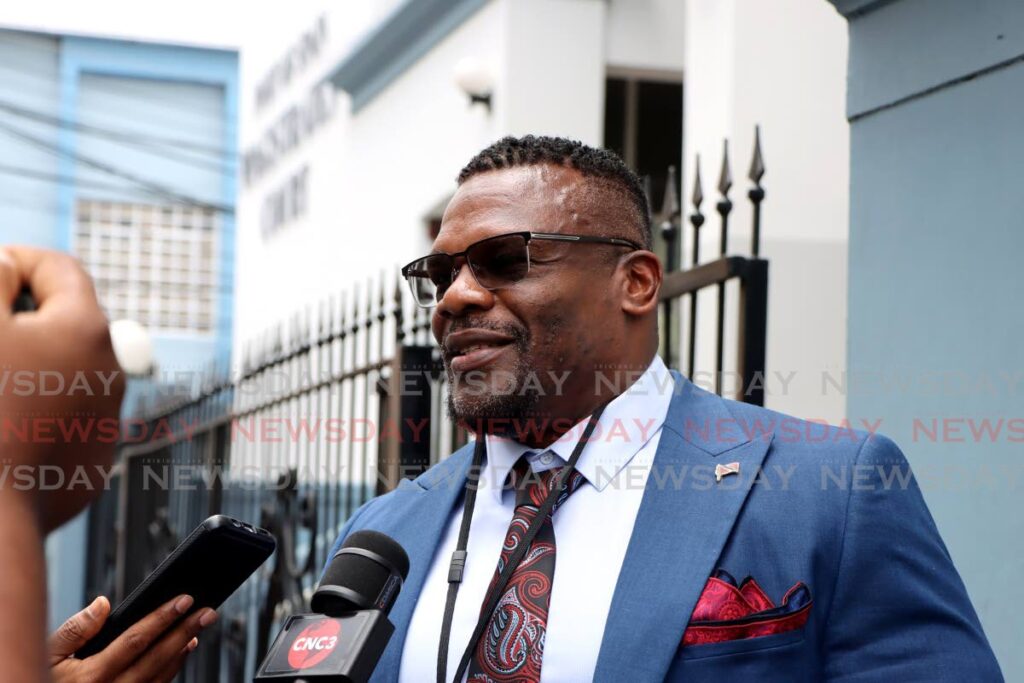
Alexander Again
In a recent statement, Homeland Security Minister Roger Alexander proposed treating child offenders as adults, sparking fierce criticism from child rights advocate Hazel Thompson-Ahye. Drawing on historical context, Thompson-Ahye referenced philosopher George Santayana’s famous quote, ‘Those who cannot remember the past are condemned to repeat it,’ to underscore the dangers of reverting to outdated practices. She argued that such a move would disregard decades of progress in juvenile justice, which emphasizes rehabilitation and the unique needs of children. Thompson-Ahye highlighted the establishment of juvenile courts in 1899 and the ratification of the Convention on the Rights of the Child in 1991 as milestones in protecting children’s rights. She warned that treating children as adults would be counterproductive, undermining efforts to reintegrate young offenders into society. Instead, she urged the minister to focus on prevention, community support, and restorative justice. Thompson-Ahye’s passionate critique, framed in a creative parody of Kenny J’s parang song, ‘Alexander Again,’ called for a renewed commitment to child-centered policies and principles.
-

Health sector gets $8.214m budget allocation
The 2023/2024 national budget has earmarked a historic $8.214 billion for the health sector, marking the largest allocation in recent years. While this figure falls slightly behind the $8.766 billion allocated to education and training, it represents a significant increase from the previous year’s $7.409 billion. Finance Minister Davendranath Tancoo detailed the allocation during his budget presentation on October 13, highlighting key investments such as $35 million for refurbishment, $45 million for facility upgrades, $60 million for critical medical equipment, $20 million for cardiac care, $100 million for dialysis, and $10 million for orthopedic and eye surgeries. Notably, the Couva Medical and Multi-Training Facility will be repurposed as the Couva Children’s Hospital, with rehabilitation efforts supported by a Memorandum of Understanding with the United Arab Emirates. Additionally, the San Fernando Hospital will receive a new catheterization lab, the Port of Spain central block is set to become operational by March 2026, and the Sangre Grande Hospital will be commissioned this year. Thirty-seven clinics will also be equipped with new dental service tools. Minister Tancoo emphasized the government’s commitment to reducing wait times for life-saving procedures, stating, ‘Faster care saves lives.’ The digitization of the National Health Management Information System is progressing, with plans to introduce a secure Health ID, a Medical Malpractice Court, a No Fault Compensation Fund, and a revised Patients’ Charter. However, critics like Dr. Neil Singh, former president of the Medical Board, labeled the budget as ‘window dressing,’ arguing that it prioritizes tertiary care over primary and secondary healthcare needs. Singh highlighted systemic issues such as outdated medications, insufficient facilities, and long wait times for surgeries. He also criticized the focus on dialysis, suggesting that better primary healthcare could reduce the need for such treatments. The TT National Nursing Association president, Idi Stuart, welcomed initiatives like the Medical Malpractice Court but expressed concerns over the lack of timelines and implementation details. Stuart urged the government to address critical issues such as patient-to-nurse ratios and the establishment of a National Health Insurance System.
-

Tancoo: New board will revamp CAL
In a significant move to address long-standing financial mismanagement, Caribbean Airlines (CAL) has appointed a new board of directors tasked with rectifying what Finance Minister Davendranath Tancoo described as ‘criminal negligence’ under the previous administration. During the 2025/2026 budget presentation in Parliament on October 13, Tancoo revealed that CAL had spent over $60 million on audits conducted by Ernst & Young and PriceWaterhouseCoopers (PwC) but failed to submit audited financial statements for nearly a decade. Despite this lack of transparency, the former finance minister repeatedly approved funding for CAL between 2017 and 2025 to cover operational pressures. Tancoo condemned this as a failure of governance, stating that the airline had descended into inefficiency and fiscal indiscipline. The new board, appointed by the Ministry of Finance, is expected to implement stringent measures to restore accountability and modernize governance standards. This includes updating the outdated State Enterprise Performance Monitoring Manual to align with international best practices in corporate governance, transparency, and fiscal responsibility. The leadership transition also saw the immediate resignation of CEO Garvin Medera, who was replaced by Chief Operating Officer Nirmala Ramai. Medera expressed gratitude to employees, partners, and customers for their support during his tenure. Under Ramai’s leadership, CAL will focus on five key initiatives: enhancing employee and stakeholder communication, improving operational efficiency, elevating customer experience, developing a sustainable growth plan, and conducting comprehensive audits to strengthen governance and accountability. The airline remains committed to its full schedule and aims to prioritize internal talent development for career advancement opportunities.
-

PNM hits ‘unrealistic,’ ‘fake,’ ‘fraudulent’ budget
The 2025-2026 national budget, presented by Finance Minister Davendranath Tancoo, has been met with fierce criticism from the opposition People’s National Movement (PNM), who labeled it as ‘fake and fraudulent.’ Central to the controversy is the government’s decision to peg the budget to an oil price of US$73.25 per barrel and a natural gas price of US$4.35 per mmbtu, figures that have been deemed unrealistic by critics. Current market prices for WTI crude and Brent crude stand at approximately US$60 and US$63.50 per barrel, respectively, while natural gas is priced at US$3.09 per mmbtu. Former Finance Minister Colm Imbert accused the government of deliberately inflating revenue estimates to access funds from the Heritage and Stabilisation Fund (HSF), a claim Prime Minister Kamla Persad-Bissessar vehemently denied. Opposition Leader Pennelope Beckles criticized the budget for ‘giving with one hand and taking away with the other,’ citing increased taxes and insufficient measures to stimulate the economy. Former Energy Minister Stuart Young echoed these concerns, warning that higher electricity rates and taxes would ultimately burden citizens. The opposition also accused the government of neglecting critical issues such as crime and education, with Port of Spain East MP Keith Scotland questioning the logic behind policies aimed at increasing revenue through traffic fines. Despite the backlash, Tancoo defended the budget, asserting that the figures were realistic and based on a ‘basket price’ approach rather than individual crude benchmarks.
-

Tobago gets biggest ever slice of budget pie
In a landmark decision, the Government of Trinidad and Tobago has allocated a historic $3.72 billion to Tobago for fiscal year 2026, marking the largest financial injection the island has ever received. The announcement was made by Finance Minister Davendranath Tancoo during the $59 billion budget presentation in the House of Representatives on October 13. This allocation fulfills the Tobago House of Assembly’s (THA) request of $3.71 billion, a stark contrast to previous years when the THA’s budgetary demands were consistently unmet under the former administration. In 2024, for instance, the THA requested $3.956 billion but received only $2.599 billion. Tancoo emphasized that the $2.96 billion allocated to the THA represents 5% of the national budget, with an additional $763 million earmarked for various ministries, bringing the total to $3.72 billion, or 6.3% of the national budget. The announcement was met with jubilation from Tobago East MP David Thomas and Tobago West MP Joel Sampson, who joined Government MPs in a spirited show of approval. The Tobago Chamber of Industry and Commerce expressed gratitude for the allocation, with President Curtis Williams highlighting the importance of transparent and efficient spending. Williams also welcomed plans for direct US-Tobago flights, the opening of the ANR Robinson International Airport’s new terminal, and the development of Marriott-brand hotels and the Elephant Tree project. However, he urged the THA to address existing financial challenges, such as unpaid vendors and contractors. Martin George, Chairman of the Tobago Business Chamber, remained cautiously optimistic, stressing the need for proper fiscal management to ensure Tobago’s economic growth.
-
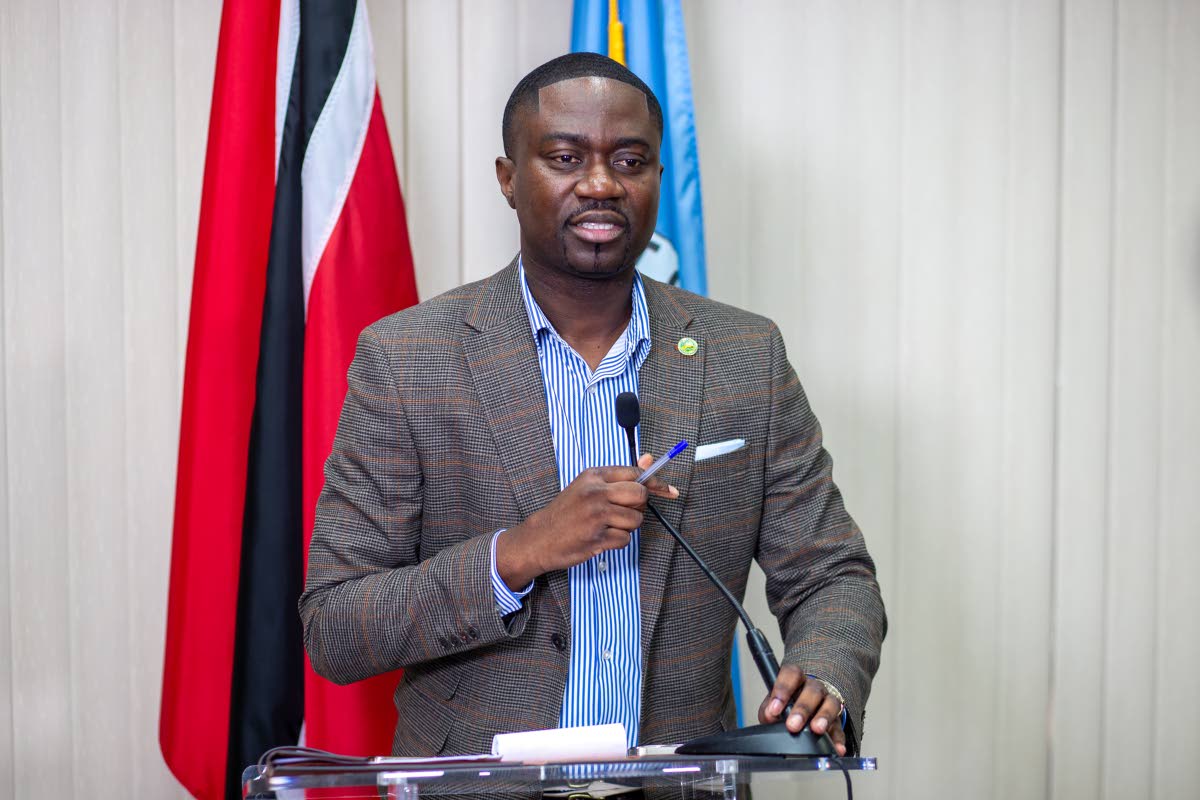
Chief Sec: A step in the right direction
Tobago has been allocated a substantial $3.72 billion in the 2025-2026 national budget, a development hailed as a “step in the right direction” by Chief Secretary Farley Augustine of the Tobago House of Assembly (THA). Speaking after the budget was presented in the House of Representatives on Monday, Augustine emphasized that this allocation signifies that for every $100 spent on national development, $5 will be directed to Tobago. This marks a significant increase from previous budgets, where the highest allocation was $4.37. Augustine noted that the THA had requested 5.9% of the national budget in June, and while the current allocation falls slightly short at 5%, it reflects improved communication and cooperation with the central government. Augustine commended the government for its willingness to engage in dialogue, even in times of disagreement, and for considering Tobago’s needs in national policy. He described the allocation as a tangible demonstration of the central government’s commitment to Tobago’s development. THA Secretary of Finance, Trade, and the Economy, Petal Ann Roberts, expressed excitement about the budget, stating that it provides an opportunity to accelerate Tobago’s progress and transform it into “the greatest little island on the planet.” The allocation of $3.72 billion, close to the $3.71 billion requested in June, is expected to enable significant advancements in Tobago’s development, marking a new momentum for the island.
-
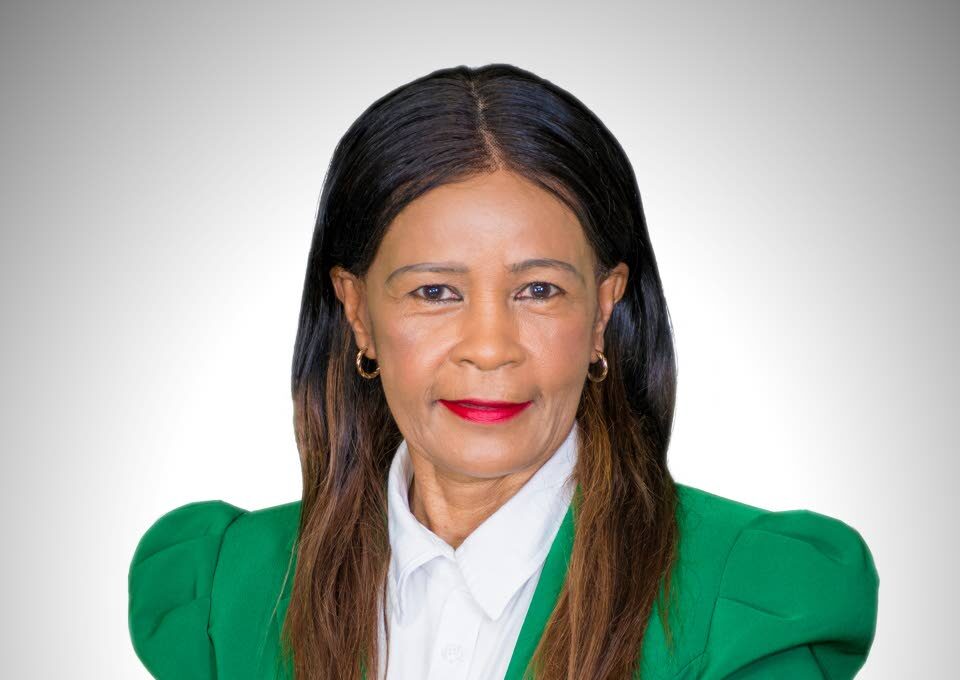
Business chambers welcome budget presentation
In the wake of the 2025/2026 budget presentation, Dianne Joseph, President of the TT Coalition of Services Industries (TTCSI), emphasized the need for the government to prioritize implementation over mere promises. While applauding initiatives such as the removal of VAT on basic food items and the establishment of a $1 billion National Investment Fund Holding Company Ltd, Joseph cautioned that past governments have struggled with execution. She stressed that without the right teams and strategies in place, the budget’s ambitious goals may remain unfulfilled. Joseph highlighted ongoing issues with online business registration, noting that despite promises, many members still face bureaucratic hurdles. She called for accountability and strategic planning to ensure the budget’s success. The American Chamber of Commerce of TT (Amcham TT) and other business associations welcomed aspects of the budget, particularly enhancements to the Customs and Excise Division and potential reforms to the VAT system. However, they emphasized the importance of inter-agency coordination and the establishment of oversight mechanisms to ensure lasting impact. Kiran Singh, President of the San Fernando Chamber of Commerce, praised the reduction in super gas prices, which he said would benefit the MSME sector by reducing transportation costs. However, concerns were raised about proposed rental taxes and electrical surcharges, which could increase costs for landlords and tenants. The TT Chamber of Industry and Commerce also highlighted measures to boost non-energy exports, including investment in agriculture and the establishment of an Export Academy. Overall, while the budget has been well-received, business leaders are calling for effective implementation to translate promises into tangible benefits.
-
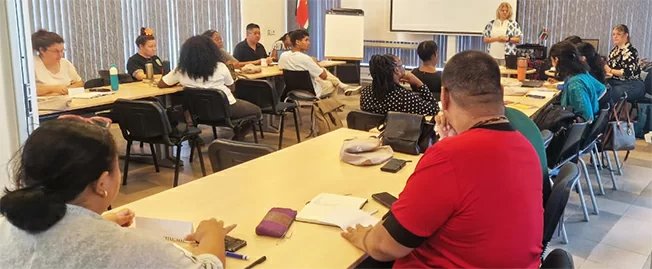
Trainingen museumwezen moeten kennis verdiepen en verbreden
A groundbreaking collaboration between the National Museum Commission of Suriname (NMS) and the Netherlands Cultural Heritage Agency (RCE) has culminated in the launch of an extensive museum training program. The initiative, which commenced on Monday, October 13, and will run until October 31, is being held at the National Archives of Suriname. This training follows the announcement made to Surinamese stakeholders in January and the signing of a final agreement with the RCE on April 10, 2025, in the Netherlands.
Roseline Daan, Chairperson of the NMS, expressed her enthusiasm for this significant milestone, emphasizing the months of preparation that led to this point. Alongside NMS Vice-Chairperson Rita Tjien Fooh and Secretary Tanya Sitaram, Daan engaged in discussions with Dutch educators, who are now paired with Surinamese experts, referred to as ‘buddies,’ to co-facilitate the training sessions.
The program is structured into three modules, covering critical areas such as collection management and registration, conflicting value systems, organization of the museum sector, sustainability, and preventive conservation. Daan highlighted the importance of preventive conservation, noting that the training aims to enhance knowledge and skills in museum heritage, education, and presentation. This, she believes, will lay a stronger foundation for the development of Suriname’s museum sector, particularly in light of the NMS’s plans to establish a National Museum. The initiative includes the rehabilitation of Building 1790 under the PURP program and the restoration of the Zeelandiaweg building, known as ‘Devil,’ which will serve as a depot for the new museum.
‘We are building capacity now so that when the museum is ready, the expertise will already be in place to get started,’ Daan explained. She also stressed the importance of deepening the careers of museum professionals and fostering a broader understanding of operational and strategic tasks within Suriname’s cultural institutions.
The training aims to achieve several key outcomes, including broadening knowledge and skills in collection management and conservation, developing interactive and educational visitor programs, improving practical skills in exhibition design and execution, and strengthening leadership and teamwork abilities for successful collaboration within museum institutions.
The Dutch trainers include Emmy Steenhoek, Vivian van Saaze, Bente Bergmans, Marc Stappers, and Nadia Wilting, while the Surinamese trainers are Audrey Hofwijks, Irene Meulenberg, and Rinaldo Klas. Participants in the training represent a wide range of institutions, including the National Herbarium of Suriname, the National Zoological Collection of Suriname, the Koto Museum, the Commewijne Story Museum, Villa Zapakara, the Bakkie Museum, the Diitabiki Museum Fositen Gudu, the National Army Museum, VHJI, the Suriname Museum Foundation, VIDS, the Suriname Nature Conservation Foundation, and staff from the Directorate of Culture.

